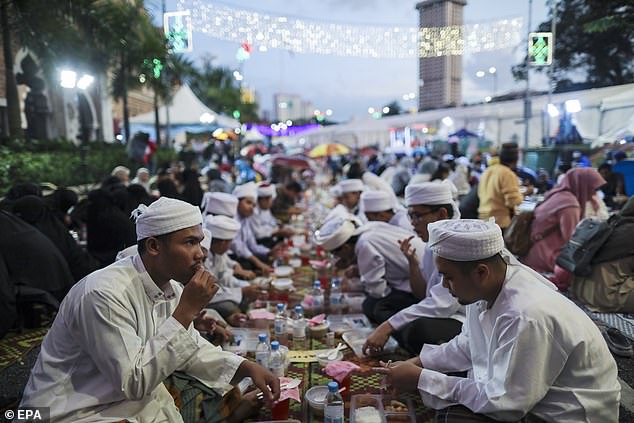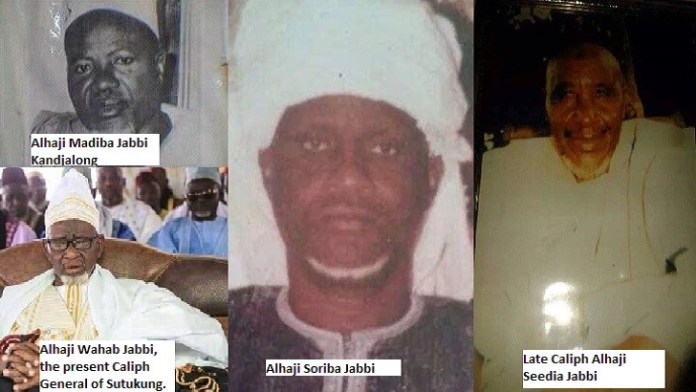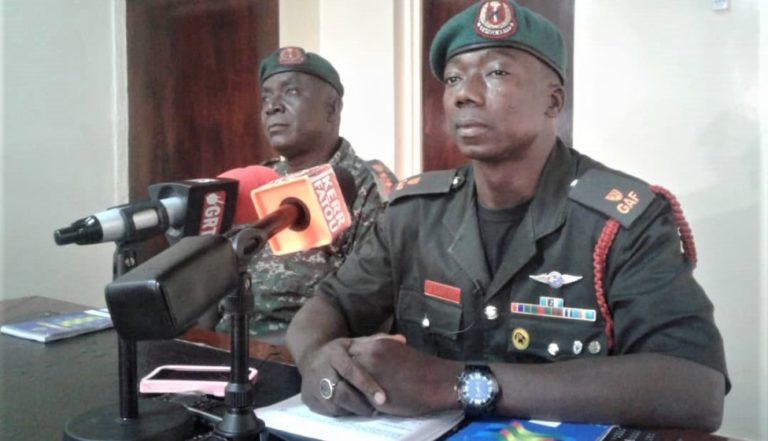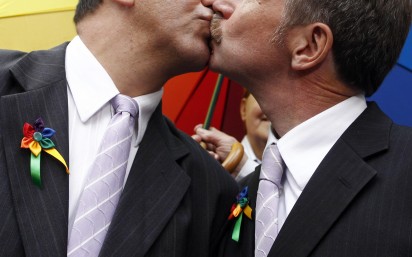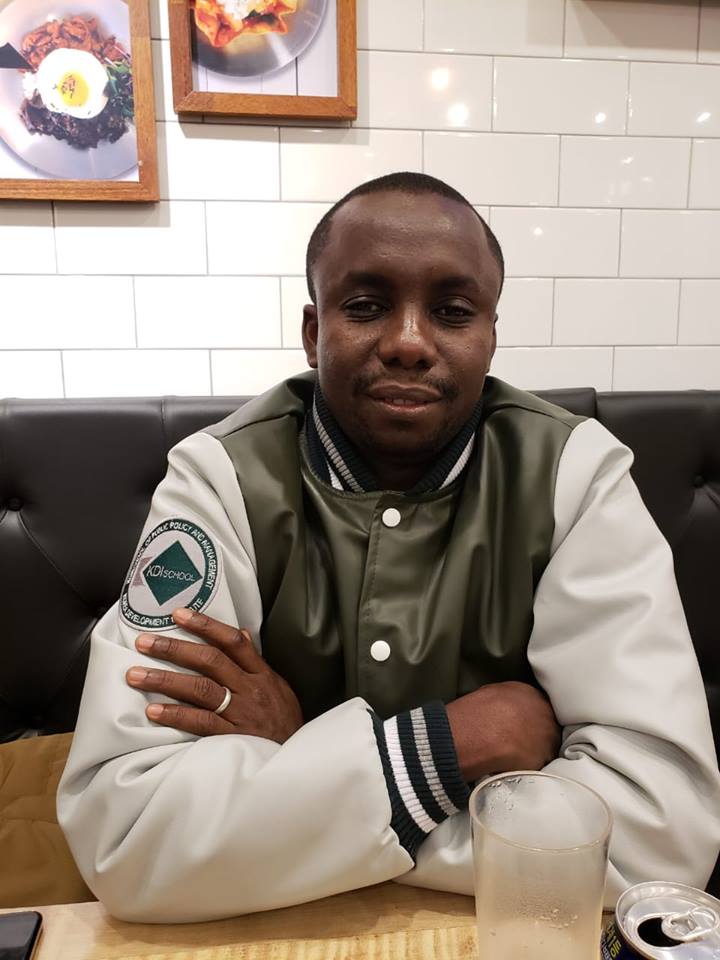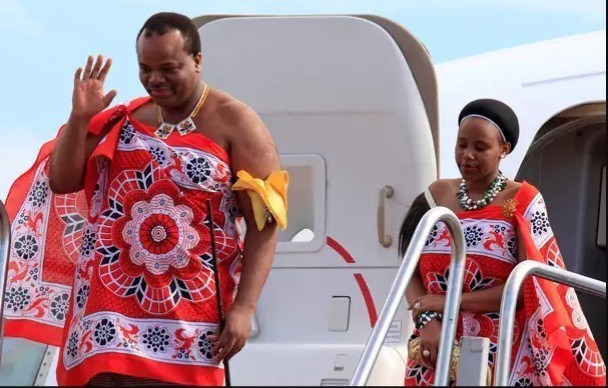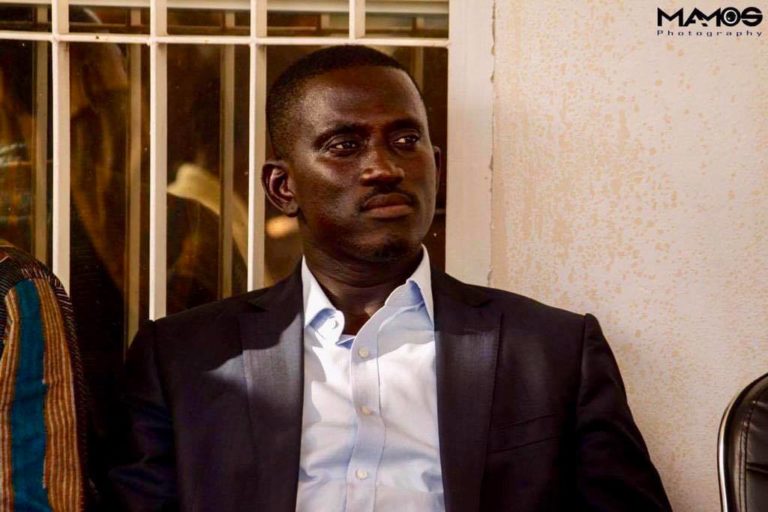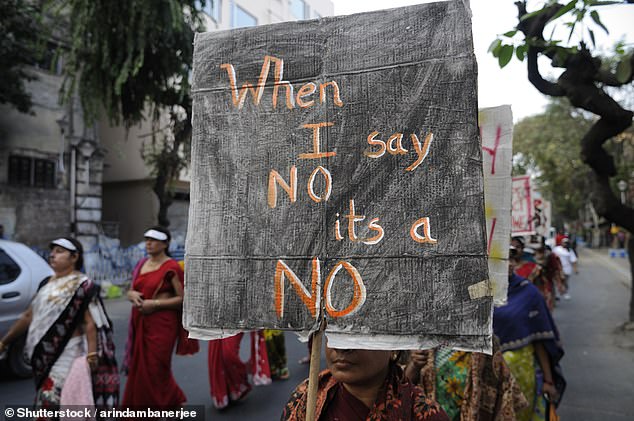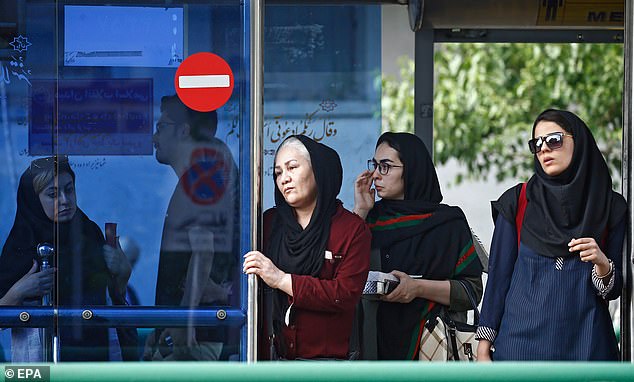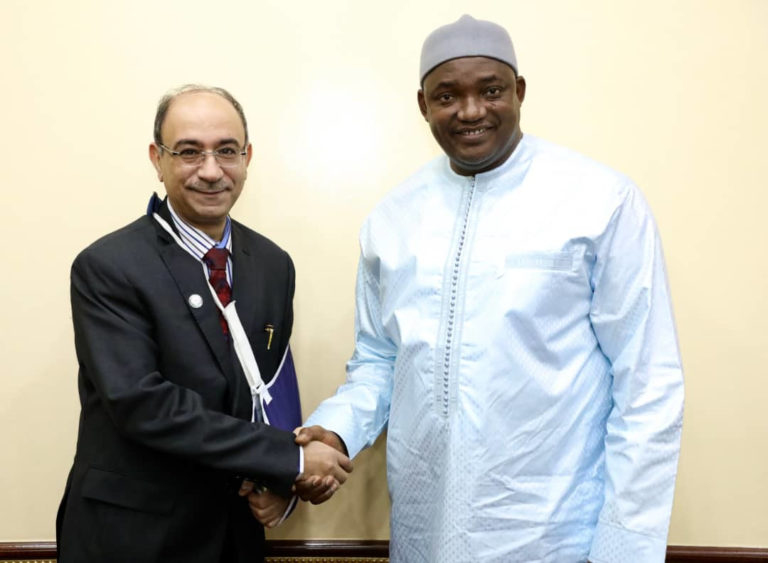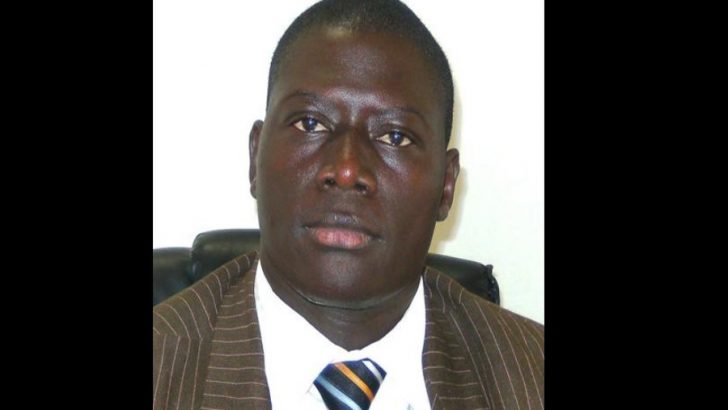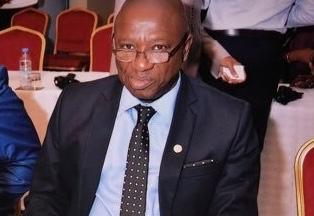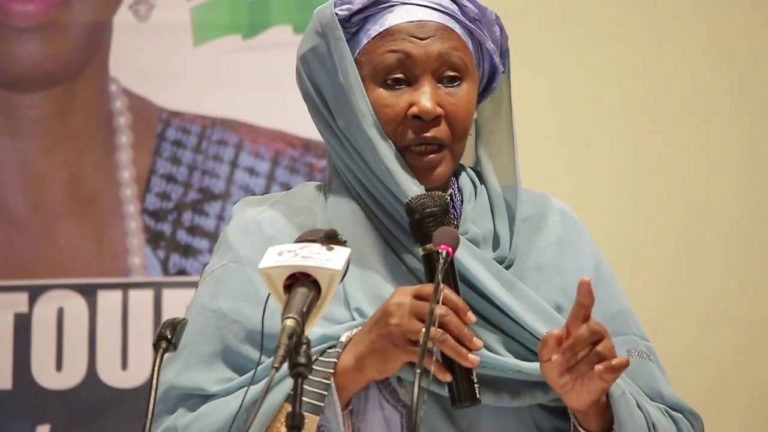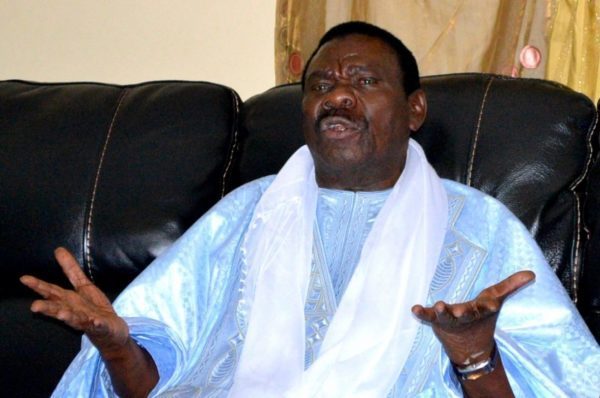By Ba S Jabbi
Alhagi Soriba Jabbi was born in 1942 to Soriba Jabbi and Oumie Jabbi in Jarra Sutukung village, Jarra East District. He was a Muslim cleric of the Jahanka tribe who have been active in teaching and spreading the Islamic religion in the sub-region for centuries.
He was named after his father because the death of his father found his mother heavily pregnant with him and his twin sister. When they were delivered, it was only him who survived and it was decided by his mother’s uncle Karang Sambou-Lamin Jabbi to be named after his father Soriba.
Shortly after his christening, his grandfather, the caliph general of the Jabbi clan in Sutukung, Karang Sambou-Lamin Jabbi (RadiAllahu Anhu) also passed away in 1942. In fact, Alhaji Soriba was the last to be christened by the venerable sheikh, who was a renowned hafizul-Qur’an.
In the middle of 1800s, Karang Sambou-Lamin Jabbi, son of Timbuktu Foday, a renowned graduate of the University of Timbuktu, embarked on a journey to Morocco with his brother, Alhaji Karang Dembo Jabbi, his first son Abdoulie Bakodaye Jabbi and some of his disciples from Fouta Touba, a Jahanka settlement located in Fouta Djallon mountains which was founded by the famous saint Karamba Touba Jabbi.
Karang Sambou-Lamin Jabbi’s journey from Guinea Conakry took him to The Gambia and ended in Jarra Sutukung where he established a caliphate after a short sojourn in the Nianis in the Central River Region. In Niani, he married Mama Jakongba Kanyi, the daughter of the wealthy and famous marabout, Morr Kajali Kanyi. She is the mother of his second son Alhaji Sheikh Seedia Jabbi of Brufut Jabbi Kunda.
The sheikh was later to be joined in The Gambia by some of his relatives among his niece, Alhaji Soriba’s mother and father. This is how the parents of Alhaji Soriba Jabbi came to live in The Gambia and precisely Jarra Sutukung Jabbi Kunda.
Alhaji Soriba grew up under the tutelage of his younger grand uncle, Alhaji Karang Dembo Jabbi, the younger brother of Karang Sambou-Lamin Jabbi. Among hundreds of Alhaji Dembo’s students, Alhaji Soriba was taught the tawhid and fiqh alongside receiving deep knowledge of the Holy Qur’an.
After the death of his grand uncle and teacher, Alhaji Soriba embarked on travelling the world in search of knowledge. He toured many African countries, America, Europe and finally settled in France for many years.
He wasn’t comfortable living in the West according to accounts narrated by his brothers and in 1980 or thereabout, he decided to return to The Gambia finally to concentrate on supporting his uncle Alhaji Sheikh Seedia Jabbi (Radiyallahu Anhu), the then leader of the majlis established by Karang Sambou-Lamin. During this period many members of the majlis in Sutukung had left for disparate locations within and outside The Gambia.
His uncles, Alhaji Bakodaye Jabbi migrated to Guinea Bissau where he established a majlis, Alhagi Sheikh Seedia Jabbi settled in Brufut, Alhaji Abdul-Qadri Jabbi also known as Alhaji Kawsuba Jabbi went to Kaur, Casamance and Alhaji Karang Madiba Jabbi also went to Kandjalong, Casamance. All of these imams established big majlis in these communities. The period also witnessed a mass travel of many members of the family to Europe and other parts of the world. This was a concern to Alhaji Soriba as he thought the family was on the verge of losing the cohesiveness hitherto maintained by his elders.
The birth and background of the Supreme Islamic council
In 1988, during the caliphate of Sheikh Alhaji Kang Seedia Jabbi of Brufut (RA) Alhaji Soriba was inspired to call a meeting of his uncles in Jarra Sutukung to discuss how they can increase inter and intra- communication among the members of the caliphate founded by Karang Sambou-Lamin Jabbi.
The meeting ended in a resolution to organise an annual gathering of the family and disciples of Karang Sambou-Lamin Jabbi in Jarra Sutukung to, among other things, offer prayers together for the late caliph and others and to interact in order to consolidate the legacy of his grandfathers. Hence the famous annual ziyareh and Islamic conference in honour of Karang Sambou-Lamin Jabbi was enacted and consequently Jarra Sutukung Islamic foundation was founded. The foundation would later build an Anglo-Arabic school, a mosque and a clinic in Sutukung. Alhaji Soriba was able to get teachers from both The Gambia and some Arab countries who were being paid by his foundation.
Later on, this was discontinued due to unavailability of funding resulting in the dwindling of its activities which impacted negatively on the viability of this project. This pained him enormously.
Every year thousands of Muslims from The Gambia, Senegal, the two Guineas, Mali, Mauritania, the Arab world and Europe would converge in Sutukung for mass prayers in honour of Sheikh Karang Sambou-Lamin Jabbi.
In 1989, after consultations with his uncles Alhaji Sheikh Seedia Jabbi the caliph general at the time, Alhaji Kawsuba Jabbi deputy caliph general, Alhaji Kang Madiba Jabbi the eldest cousin of the two caliphs, Alhaji Soriba started to agitate for the creation of an umbrella body that would manage the affairs of the Muslim ummah in The Gambia. After receiving the blessings of his seniors in the majlis, he went on a countrywide tour to many Islamic centres in The Gambia to enlighten their heads about the necessity to form a supreme body of Gambian Muslims through which all the issues affecting the general welfare of Gambian Muslims would be channelled.
After getting overwhelming endorsement, he summoned a big stakeholders meeting of Islamic centres in Sutukung that would coincide with the annual ziyareh. The meeting was successful as almost all the invitees came and it was there that the final blueprint for the establishment of the Supreme Islamic Council was concretised. On the heels of this landmark gathering, Alhaji Soriba proceeded to get the support of the government then headed by Alhaji Sir Dawda Jawara. He succeeded in getting the executive nod to go ahead with the process of forming the body and he was given all the needed support to form the council.
When he bought a house in Banjul on Allen Street, he got close to many very good people. Those were the first group of people he started to inform about his plans after the Gikineh and the Sillah family of Sutukung. Among the people he spoke to in Banjul were the then Imam Ratib of Banjul, Alhaji Abdoulie Jobe, Alhaji Baboucarr Njie alias ‘Njie BP’, Alhaji Dawda Njie, Alhaji Dodou Taal and some erudite imams in Serekunda like Alhaji Muhammed Lamin Ceesay, Alhaji Muhammed Lamin Bah and others. In West Coast Region, he solicited the support of Alhaji Kawsu Sillah, Imam Alhaji Karamo Touray of Brikama, Alhaji Yusupha Darboe of Basori, Alhaji Mamanding Kanteh of Sifoe and Alhaji Sheriff Kebba Hydara of Brufut. These elders gave their unalloyed support to him for the creation of the council.
In 1989 after successfully sensitising all the relevant stakeholders of the Islamic ummah in The Gambia and the religious sects in Senegal, he called for a congress at the Independence Stadium to elect the executive committee of the Supreme Islamic Council. He was nominated to be president by all the religious leaders mentioned earlier but was opposed by some Arabic university graduate teachers.
His manifesto was to create an impartial and semi-autonomous supreme Islamic body that would serve as a focal point for development assistance from sister Islamic countries, a body that would be a point of reference for all matters relating to the affairs of Gambian Muslims. He wanted to pioneer a council that can bridge the gap between the Gambian Muslims and their brethren in the world. Alhaji Soriba was conscious of the fact that The Gambia, a predominantly Muslim country can derive more support from the richer Islamic countries only when she is effectively and structurally integrated into the wider Islamic ummah. This was his agenda and he was elected by the congress with a landslide as the first president of the Supreme Islamic Council.
Alhaji Soriba then requested from The Gambia Government help to travel to the Islamic countries to formally inform the leaders of these countries about the developments. This was granted without delay. He visited presidents Abdou Diouf of Senegal, Muammar Gaddafi of Libya, Saddam Hussein of Iraq, Lasana Conté of Guinea, Ayatollah Ruhullah Khomeini of Iran and the royal families of both Saudi Arabia and Kuwait and used the audiences to solicit their support and cooperation.
Being a strong advocate of consensus building as an effective development tool, he had earlier insisted for the adoption of a constitution that would define the structure and the governance procedures of the council. This constitution would point out the terms and conditions of service of the executive of the council and also define the electoral code. The executive council was supposed to be asking for fresh mandates from the general membership every five years and in one of the subsequent elections, he lost the presidency which he accepted in good faith.
The history of the formation of the Supreme Islamic Council cannot be totally fair and reflective of the hurdles leading to its formation if one did not know the huge challenges and opposition that Alhaji Soriba had to face from some Islamic graduates who unsuccessfully tried all they could to stop him. When they failed to convince the stakeholders with their allegations that the man wasn’t a university graduate and so therefore could not be a president even when he came up with the idea, they continued to correspond with Saudi Arabia with a view to convince the Saudis not to recognise his bid for the presidency. At one point, the Jabbi family had to summon him to ask him to let go but his responses had always been that a development phenomenon can never be successfully realised without challenges and therefore he was ready to ride the waves to form this all-important body come rain or shine. He asked for blessings and guidance from his uncles. Interestingly, through persuasion and his genuine intents, he was to be embraced later on by most of his arch critics. He was a peaceful man who wouldn’t hesitate to talk truth to powerAlhaji Soriba Jabbi First President, Supreme Islamic Council The Gambia
Alhaji Soriba Jabbi was respected and revered by both Sir Dawda Jawara and Yahya Jammeh, the first and second presidents of The Gambia, owing to his steadfastness to the principles of Islam and his stance on tolerance and truth telling. A non-violence advocate, Alhaji Soriba Jabbi was able to mediate in conflict situations among many people in The Gambia. When he lost the presidency of the council, he continued to strengthen the Sutukung Islamic Foundation and the annual ziyareh. In one of his visits for a medical checkup in London, he summoned my presence by his hospital bed and said he feared the council would be mired in countless controversies and its history might be distorted and different groups motivated by different interests would attempt to use it for different purposes. This, he said would bring agony to the council thereby making it lose some of its respect and relevance for a while. According to him all these shall come to pass and the Supreme Islamic Council would re-emerge to be governed by its generic ideology which would once again rally all Muslims around it and would serve its purpose for the better wellbeing of all Gambians.
Alhaji Soriba Jabbi passed on in 2003 and he is survived by 27 children, 13 of whom are males. He left behind a Supreme Islamic Council that complements government’s efforts in ensuring that a peaceful environment is sustained for development. The majlis and the caliphate he helped consolidate are still thriving today under the caliphate of Alhaji Wahab Jabbi hafizul-Quran of Sutukung. The annual ziyareh is growing in strength and as he said, family members numbering thousands are in constant communication with each other thanks to the annual Islamic gathering. The latest high profile member to come on board is her Excellency Madam Fatima Bio-Jabbi, the First Lady of Sierra Leone, who contributed significantly towards the successful staging of the last gathering.
Editor’s note: This article was culled from The Standard newspaper

